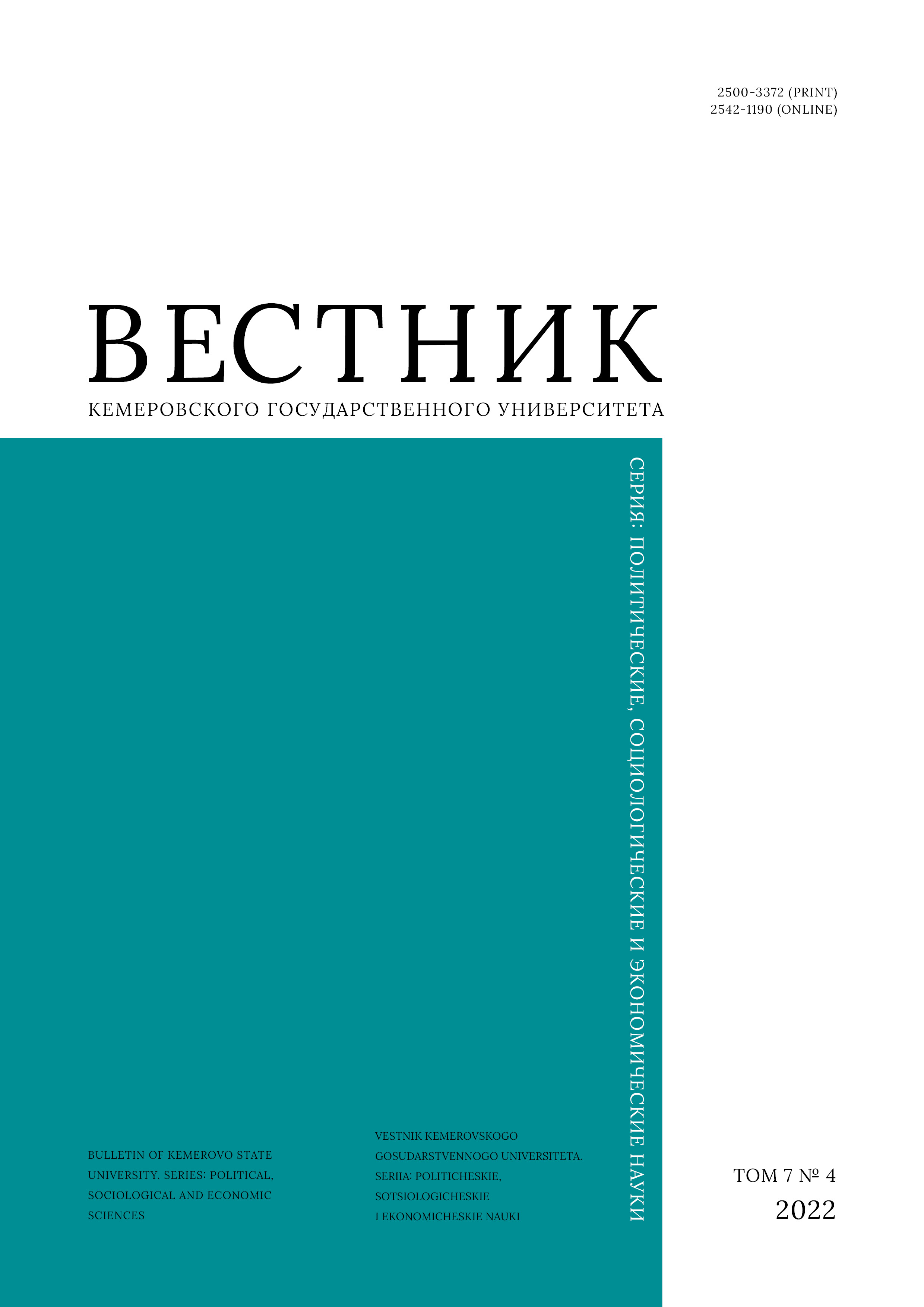Novosibirsk, Novosibirsk, Russian Federation
The ongoing socio-economic transformations have a significant impact on global food security and expose the problem of access to quality food for different population groups. In order to intensify food production, public institutions support large infrastructure projects in the agricultural sector and expand large vertically-integrated entities into rural areas, including regions with low agricultural development. A thorough analysis of negative experience in agricultural holdings could prevent the implicit degradation of the rural territories which they strive to support. The author developed a systematic multistage methodological approach to assessing the socio-economic effects of agricultural holdings. The method was tested in the Maslyanino municipal district of the Novosibirsk Region. The article introduces a matrix of potential socio-economic effects from the activities of agricultural holdings and a list of indicators to assess their expression. The study used such methods as description, classification, economic-mathematical modeling, trend analysis, analysis of financial coefficients, factor analysis, adaptive short-term forecasting, and formalization. The new methodological approach can be used to design scenarios of rural development by agricultural holdings, as well as to promote their positive socio-economic effects.
rural areas, integrated development, socio-economic effects, vertically integrated structures, agriculture, agribusiness
1. Kholodova M. A., Usenko L. N., Krinichnaia E. P. Development of the processes of cooperation and integration interactions in the agrarian sector of Russia's economy. Rassvet: AzovPrint, 2020, 116. (In Russ.) https://doi.org/10.34924/FRARC.2021.68.66.001
2. Kalafatov E. A. The negative impact of agricultural holdings on the socio-economic development of rural Russia. Moscow economic journal, 2022, 7(2). (In Russ.) https://doi.org/10.55186/2413046X_2022_7_2_108
3. Fadeeva O. P. "It was in Penkovo": how agroholdings conquer rural Siberia. Krestianovedenie: Teoriia. Istoriia. Sovremennost, eds. Nikulin A. M., Pugacheva M. G., Shanin T. Moscow: Delo, 2015, iss. 10, 197-233. (In Russ.) EDN: https://elibrary.ru/XRTXQL
4. Andrianova E. V., Davydenko V. A., Khudyakova Yu. Paradoxes of modern institutional development of peasant (farmer) farms. Tyumen State University Herald. Social, Economic, and Law Research, 2022, 8(1): 51-101. (In Russ.) https://doi.org/10.21684/2411-7897-2022-8-1-51-101
5. Vaskin V. F., Kuzmitskaya A. A., Korosteleva O. N. The nature and place of agricultural holdings and peasant farms in the development of agribusiness and rural areas. Vestnik Bryanskoj gosudarstvennoj selskokhozyajstvennoj akademii, 2021, (2): 65-75. (In Russ.) EDN: https://elibrary.ru/KNCOVT
6. Nefedova T. G. Spatial differentiation of agricultural production in Russia in conditions of natural and social desertification. Izvestiya Rossiiskoi Akademii Nauk. Seriya Geograficheskaya, 2022, 86(1): 69-81. (In Russ.) https://doi.org/10.31857/S2587556622010101
7. Monakhov S. V. Institutional aspects of the development of agroindustrial formations in modern conditions. Topical issues of the modern economy, 2022, (2): 173-176. (In Russ.) https://doi.org/10.34755/IROK.2022.71.42.044
8. Akinin P. V., Akinina V. P., Alimova I. O. Modern trends and contradictions in the development of agricultural holdings in Russia. Financial Business, 2022, (3): 18-21. (In Russ.) EDN: https://elibrary.ru/BLFREQ
9. Petukhova M. S., Rudoy E. V., Orlova N. V. Assessment of the impact of innovative activity in agricultural production on the standard of living of the rural population. International agricultural journal, 2022, (2): 111-115. (In Russ.) https://doi.org/10.55186/25876740_2022_65_2_111
10. Adukov R. K., Adukova A. N. Food security in Russia: the need for strengthening the social orientation of public administration. Economy, labor, management in agriculture, 2021, (4): 90-99. (In Russ.) https://doi.org/10.33938/214-90
11. Rudoi E. V., Petukhova M. S., Riumkin S. V., Trufliak E. V., Kurchenko N. Yu. Science-based forecast of precision agriculture development in Russia. Novosibirsk: Zolotoi kolos, 2021, 138. (In Russ.)) EDN: https://elibrary.ru/BLJFAQ
12. Kuralbayeva R. E., Baibulekova L. A., Sakibaeva K. S. Agroindustrial innovations as the main aspect of development of domestic agriculture. Statistika, uchet i audit, 2019, (3): 167-170. (In Russ.) EDN: https://elibrary.ru/RTLATI
13. Belikova I. P., Baycherova A. R. Innovation and implementation of modern technologies in agriculture in Russia. Economics and management: problems, solutions, 2020, 2(12): 44-49. (In Russ.) https://doi.org/10.36871/ek.up.p.r.2020.12.02.008
14. Slobozhanin D. M., Afanasieva T. A., Kuzmina E. S. The value chain interconnection and the efficiency of competitive strategies of the participants of the meat sector of the region. Moscow economic journal, 2022, 7(3). (In Russ.) https://doi.org/10.55186/2413046X_2022_7_3_188
15. Tsivileva A. E., Golubev S. S. Multiplier economic and social effect of activities in territories of priority social and economic development in the republic of Sakha (Yakutia). Ugol, 2021, (11): 33-37. (In Russ.) https://doi.org/10.18796/0041-5790-2021-11-33-37
16. Legchilina E. Yu. Socio-economic effects of transformation of social-labor relations in the conditions of pension reform and digitalization of the economy. Innovative Economy and Society, 2020, (1): 34-39. (In Russ.) EDN: https://elibrary.ru/FCRUSE
17. Feoktistova O. A., Vlasikhin S. A. Social Code: experience of the Russian regions and the expected socio-economic effect. Topical issues of the modern economy, 2018, (6): 638-648. (In Russ.)) EDN: https://elibrary.ru/GZODKL


















